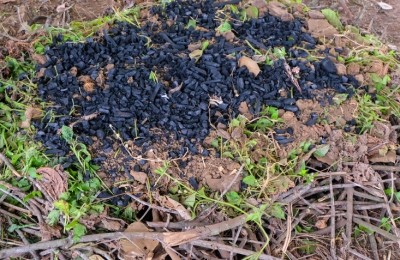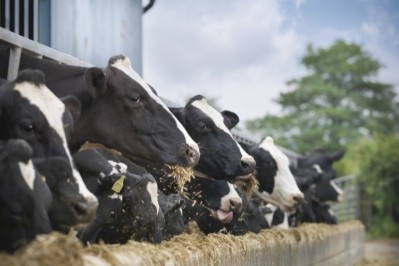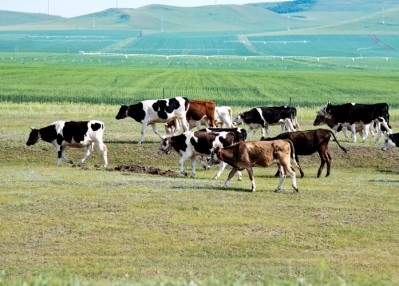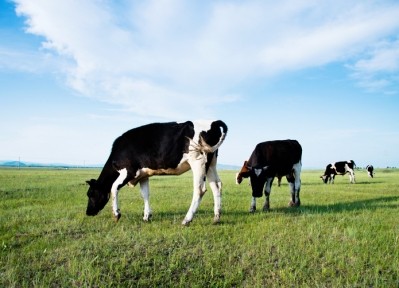Trial yields promising results on methane reduction for Rumin8

The objective of the CQU study, which was published in the journal, Methane, was to identify MRCs that could be delivered via drinking water, a method that is more applicable to pasture-based farming systems globally.
The “clear standout" compounds in terms of methane reduction were sodium monensin and the Rumin8 Investigational Veterinary Product (IVP), delivering methane production reductions of 64.2% and 99%, respectively, without a major reduction in in vitro dry matter digestibility (IVDMD), reported the authors.
“There was also a reduction in the acetate to propionate ratio indicating increased use of hydrogen for propionate-synthesising microbes. However, the large methane reductions were accompanied by significant decreases in total volatile fatty acid (VFA) concentrations for both. This indicates that the compounds could be suitable for deployment in animal drinking water in future in-vivo trials, but the dose rates may need to be optimised to ensure there is no negative impact on animal productivity.”
Rumin8, recently named one of the 15 Climate Tech companies to watch by the MIT Technology Review, is developing solid feed and water delivered methane reducing feed additives that leverage an active compound called tribromomethane (TBM), which was identified in studies with red seaweed. TBM inhibits this methanogenesis process by blocking the action of key enzymes in the cycle in which carbon dioxide is reduced to methane by the microbes in a cow’s rumen called archaea, according to the developer.
Study design
The CQU trial first analysed each MRC for solubility and stability in an aqueous solution. The aqueous solutions containing the MRCs were then subjected to temperature variations and starting pH to assess their solubility and stability in simulated water trough conditions.
In-vitro batch culture fermentations were then undertaken using a medium-quality tropical grass feed substrate to simulate pastures consumed by cattle in extensive grazing systems. Subsequently, measurements were taken to assess total gas and methane production, in-vitro dry matter digestibility, and VFA concentration.
Rumin8 CEO, David Messina, said the study's results were consistent with the trial results from other in-vitro and animal studies. The impact on IVDMD is important, as negative IVDMD is viewed as a proxy for productivity losses, as animals can’t convert the feed’s dry matter into energy.
“This trial indicated almost total methane elimination in a laboratory setting,” said Messina. “The zero impact on dry matter digestibility is broadly consistent with the positive animal productivity results Rumin8 is achieving in animal trials globally.”
Water-based delivery of methane blockers
The study's authors outlined how MRCs are classified into two types: Rumen microbiota modifiers and methane production inhibitors. Modifiers alter the population of methanogenic microbes, while inhibitors disrupt methane production pathways. Compounds like macroalgae and 3-nitroxypropanol typically act as inhibitors, while plant secondary compounds such as tannins, saponins, and essential oils, along with ionophores, organic acids, nitrates, and lipids, function as modifiers.
Most MRCs have been developed for dairy or feedlot systems, where delivery via feed is straightforward; however, in pasture-based systems, like Brazil’s, where 82% of cattle are pasture-raised, feed-based delivery is challenging. Water-based delivery via troughs offers a promising alternative, though little research has been done on its viability, added the animal scientists.
Regulatory pathway
Earlier this month, Rumin8 secured feed ingredient approval in Brazil from the Ministry of Agriculture, Livestock and Food Supply for its methane reducing feed additive.
The Brazilian approval follows the provisional regulatory authorization in New Zealand in late July.
“Rumin8 is very quickly building a bank of regulatory authorizations required to progress the commercialization of our methane reducing feed additives for livestock,” said Messina.
“Two regulatory authorities have now assessed the safety data of our products, and both have allowed us to proceed through an important regulatory gateway. That provides Rumin8 with confidence that we are on the right pathway.”
With the receipt of the Brazilian feed ingredient approval, Rumin8 can progress efficacy and safety studies in commercial animals to generate the required data for full approval in Brazil, a country with the largest cattle herd in the world, at almost 235 million head.
“Adopting sustainable practices in beef production, while maintaining or boosting productivity, is particularly important in Brazil to maintain its position as a leading global beef exporter. Rumin8 is ticking those boxes with positive top-line results from three recent cattle trials indicating reductions of methane production of up to 86% and weight gains ranging from 8.4% to 12.5% higher than control groups that were fed the same base ration. The trials were undertaken by independent researchers in Australia, the US and Brazil and funded by Rumin8," continued Messina.
Rumin8 has also been working with commercial and research partners in New Zealand since late 2022 to evaluate the safety and efficacy of its technology.
“Provisional registration means that the regulator has reviewed Rumin8’s safety and efficacy package for its product generated to date and is happy for the company to proceed to conduct commercial trials. So, we will be conducting several studies focused on New Zealand production systems and local feeds to demonstrate the target dose level, efficacy, and long-term safety of the product. There is already a significant safety database around TBM itself, so Rumin8 will be filling in with some non-clinical studies to support its New Zealand and international regulatory filings,” the CEO told FeedNavigator in July.







